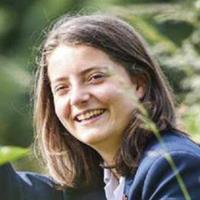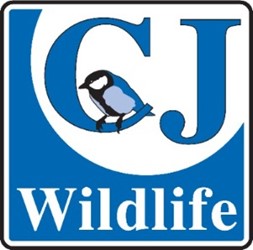Rewilding has become a buzzword in the conservation sector, which is gaining momentum and scientific support year on year. It is an umbrella term which encompasses the reintroduction of absent species and the handing over of ecosystems to natural processes for the aim of ecological restoration.
The methodology is highly debated and still developing but recent projects have shown that rewilding has the potential to mitigate flooding, store carbon and reinvigorate the dynamism of food chains.
A vital concept which is highlighted through the work of rewilding, is the environmental psychological phenomenon of shifting baseline syndrome. This describes the changing attitudes and definition of normality in terms of health and distribution of nature depending on what we see or grow up with. However, this arguably clouds the judgement when it comes to conservation and management. Knepp estate is a rewilding project in West Sussex which is restoring the dynamism of healthy naturally functioning ecosystems on former unprofitable agricultural land through the introduction of herbivores in order to revive the competition between animal disturbance and vegetation succession. Here the less intrusive and species-unspecific conservation methods have brought unprecedented results which contrast previous scientific beliefs.
For example, the purple emperor butterfly was believed to be an indicator of ancient woodland however flocks appeared at Knepp, attracted to the scrub and sallow groves. These were finally allowed to develop despite cultural connotations of its unproductivity, with the proportion of woodland and scrub on the estate increasing by 32% in just 15 years. In 2013 in just 5 hours 84 purple emperors were recorded and this rose to 388 in 2018, making Knepp the largest breeding colony in the UK for this rare butterfly.
Baseline syndrome... describes the changing attitudes and definition of normality in terms of health and distribution of nature depending on what we see or grow up with
Similarly, nightingales were thought to favour woodland habitats but instead at Knepp they were found to favour thorny cover and hedgerows of blackthorn. From 0 records in 2003, students recorded 34 territories here just 9 years later with a breeding success of 79%. They also spilled over to neighbouring farmland which proved that Knepp was an established stronghold for nightingales. As nightingales have dramatically declined by 91% from 1967-2007 and are continuing to suffer despite species-specific conservation practices to regenerate woodland, the development of the population at Knepp is especially encouraging.
This mis-understanding of true preferences and the behaviour of species has led to further misplaced conservation. Turtle doves are another target species which has seen a devastating decline by 60% from just 2005-2010. Operation turtle dove approached the Knepp Estate to aid in the conservation efforts and suggested wheat, oil, millet and canary seeds to be scattered, to provide them with a greater food source. Knepp grateful of the suggestion however evaluated this to be short-sighted as the number of turtle doves is in fact declining on an arable diet as it lacks the vitamins and antioxidants they need for a healthy life. Others argue that more arable weeds on which they feed on should be grown and a greater diversity of habitats needs to be restored as they have been recorded on heathland and fir plantation in addition to arable land.
Another rewilding initiative, Oostvaardersplassen, north of Amsterdam is masterminded by rewilding pioneer Frans Vera, who actually partially inspired Isabella Tree and Charlie Burrel at Knepp to take on their rewilding journey. It is infamous for its herbivore reintroductions but not always for the right reasons. Chronic overgrazing and a population explosion due to a lack of an apex predator has resulted in over half of the population of Konik ponies, red deer and heck cattle being killed to prevent winter starvation. However, this reserve still demonstrates that humans don’t always know best as Oostvaardersplassen is home to the first white tailed eagles to nest below sea level, which was previously thought to be entirely uncharacteristic by ornithologists.
Therefore, rewilding and its technique of process led conservation reveals the limitations in our understanding, as what we perceive as their favoured habitats and food are in fact a representation of the species pushed to the brink of their threshold due to human activity. This shows shifting baseline syndrome is important to challenge as conservation moves forward as targeted management may not be always effective.

